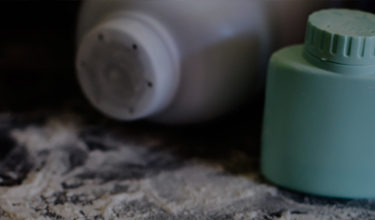Does Talcum Powder Cause Cancer?
While a long history of medical studies has firmly linked repeated use of talc products to an increased risk of ovarian cancer, some ovarian cancers are more likely to develop than others.
The most common type of ovarian cancer to develop from talcum powder use is epithelial ovarian cancer (EOC). Epithelial tumors grow on the outer surface of the ovaries and come in several varieties, all of which are affected by prolonged use of talcum powder, according to an analysis published in the journal Cancer Prevention Research.
Like most ovarian cancers, EOC is difficult to detect during routine gynecological care. It may not show up on a pap smear, and ovarian tumors are difficult to feel during a routine pelvic exam.
Common methods of early EOC detection include:
- Transvaginal ultrasound: Uses sound waves to search for tumors in the uterus, fallopian tubes, and ovaries
- A blood test: Checks for the CA-125 protein, high levels of which are often found in women with ovarian cancer
However, doctors may be unlikely to use either of these methods unless a patient is already showing persistent symptoms of ovarian cancer.
The symptoms of ovarian cancer tend to hide in plain sight, resembling symptoms of other, less dangerous conditions. By the time doctors think to check for ovarian cancer, it has often already started spreading to nearby organs and through the rest of the body.
Ovarian cancer symptoms may include:
- Back pain
- Bloating
- Constant fullness/trouble eating
- Constipation
- Fatigue
- Frequent urination
- Menstrual changes
- Pelvic or abdominal pain
- Stomach swelling
- Weight loss
Any woman experiencing these symptoms daily for more than a few weeks should speak to her doctor as soon as possible for proper screening.
Risks of Talcum Powder for Women Known for Decades
Studies researching the link between talcum powder and ovarian cancer have been published for decades.
In 1982, Harvard Medical School professor Dr. David Cramer published the first scientific study associating talcum powder use on women’s genital area with an increased risk of ovarian cancer. Subsequent research published through the 1980s and 1990s supported Dr. Cramer’s findings.
A study published in 1992 urged manufacturers to put warning labels on talcum powder products because of the threat to women’s health.
In fact, Johnson & Johnson lawyers admitted in federal court that the company had been aware of the research associating ovarian cancer with talc since the early 1980s, and the corporation intentionally decided not to put warnings on their packaging or in their ads.
Due to the overwhelming scientific evidence and Johnson & Johnson’s refusal to add warning labels, we are currently reviewing cases involving ovarian cancer after using talc-based baby powder.


